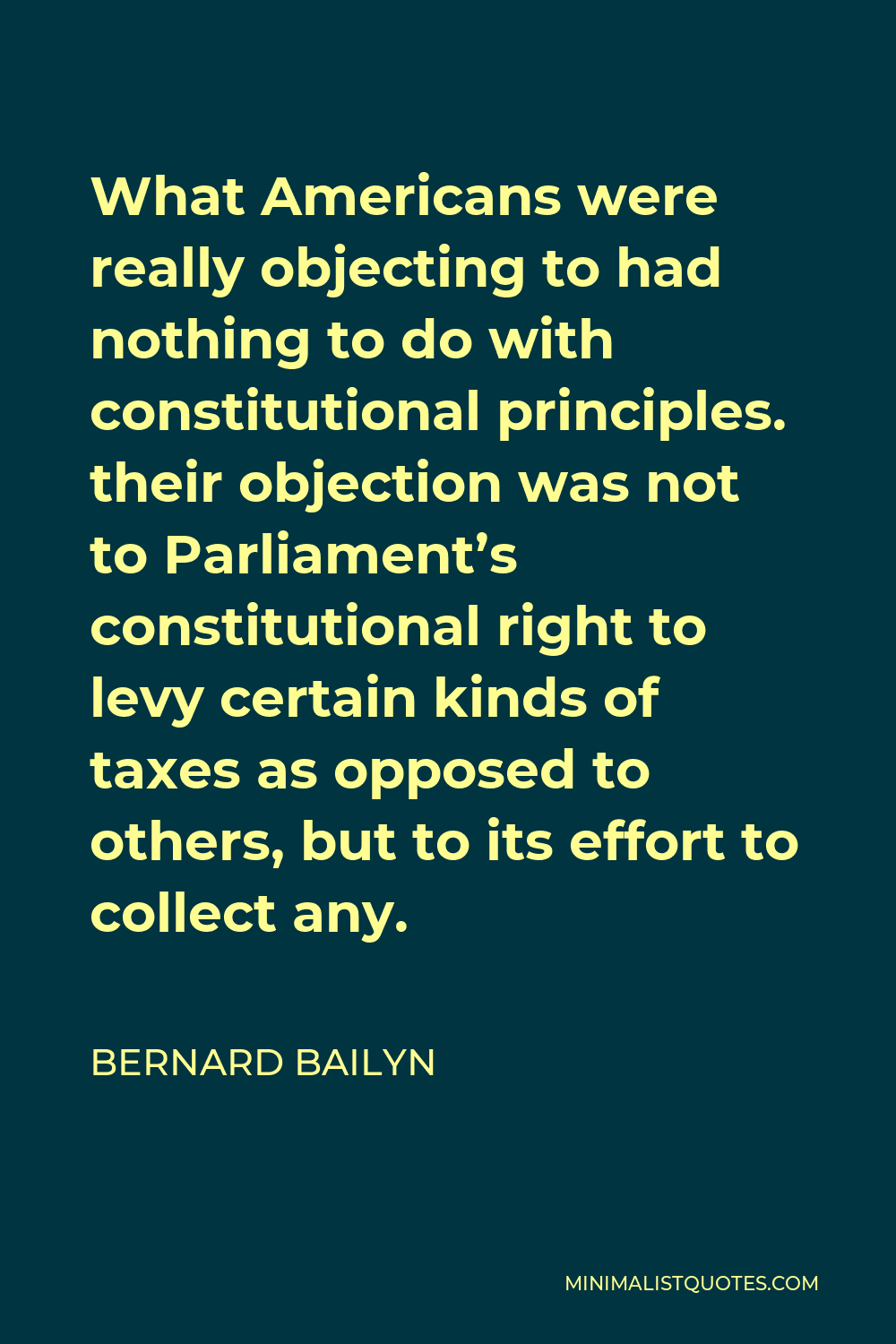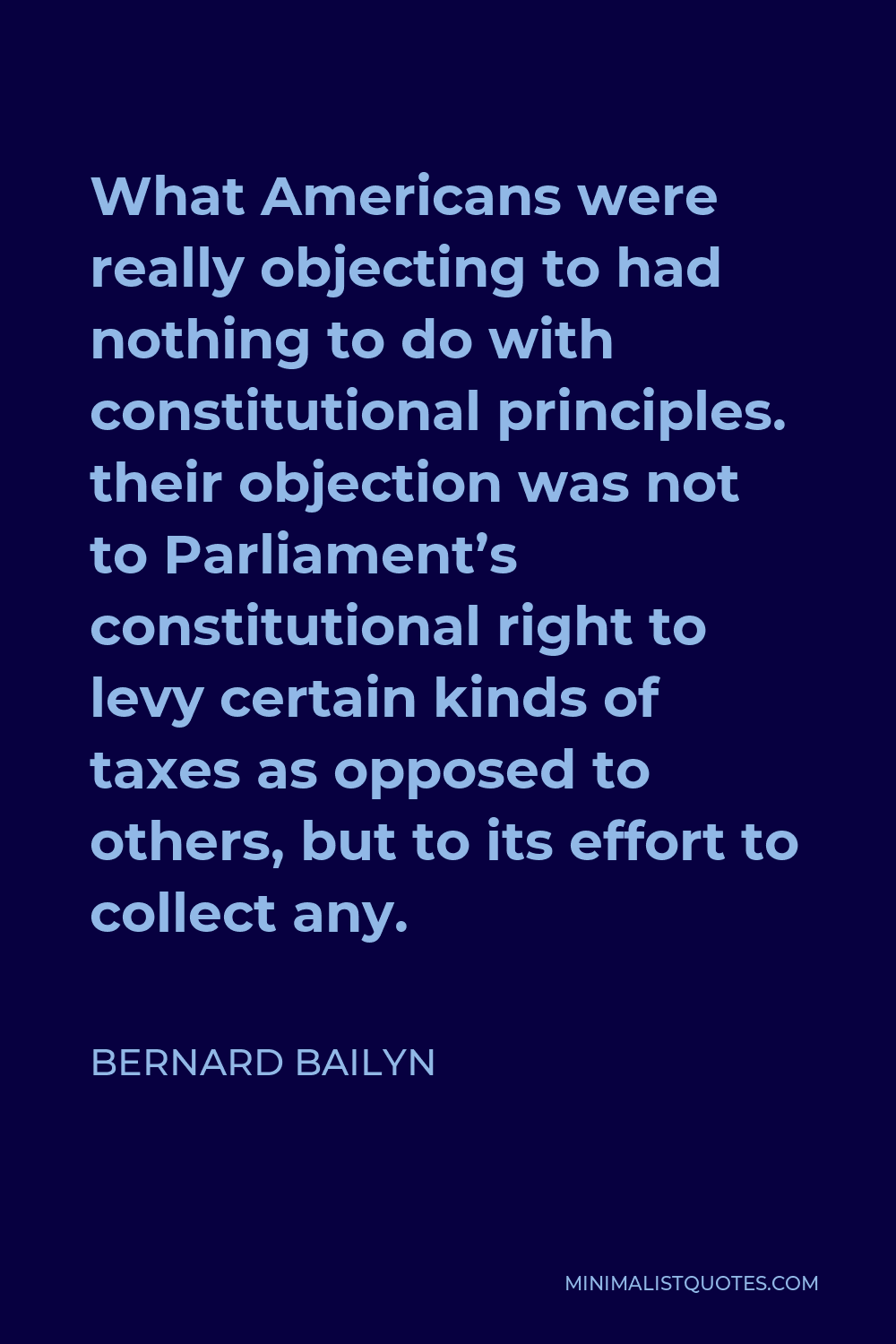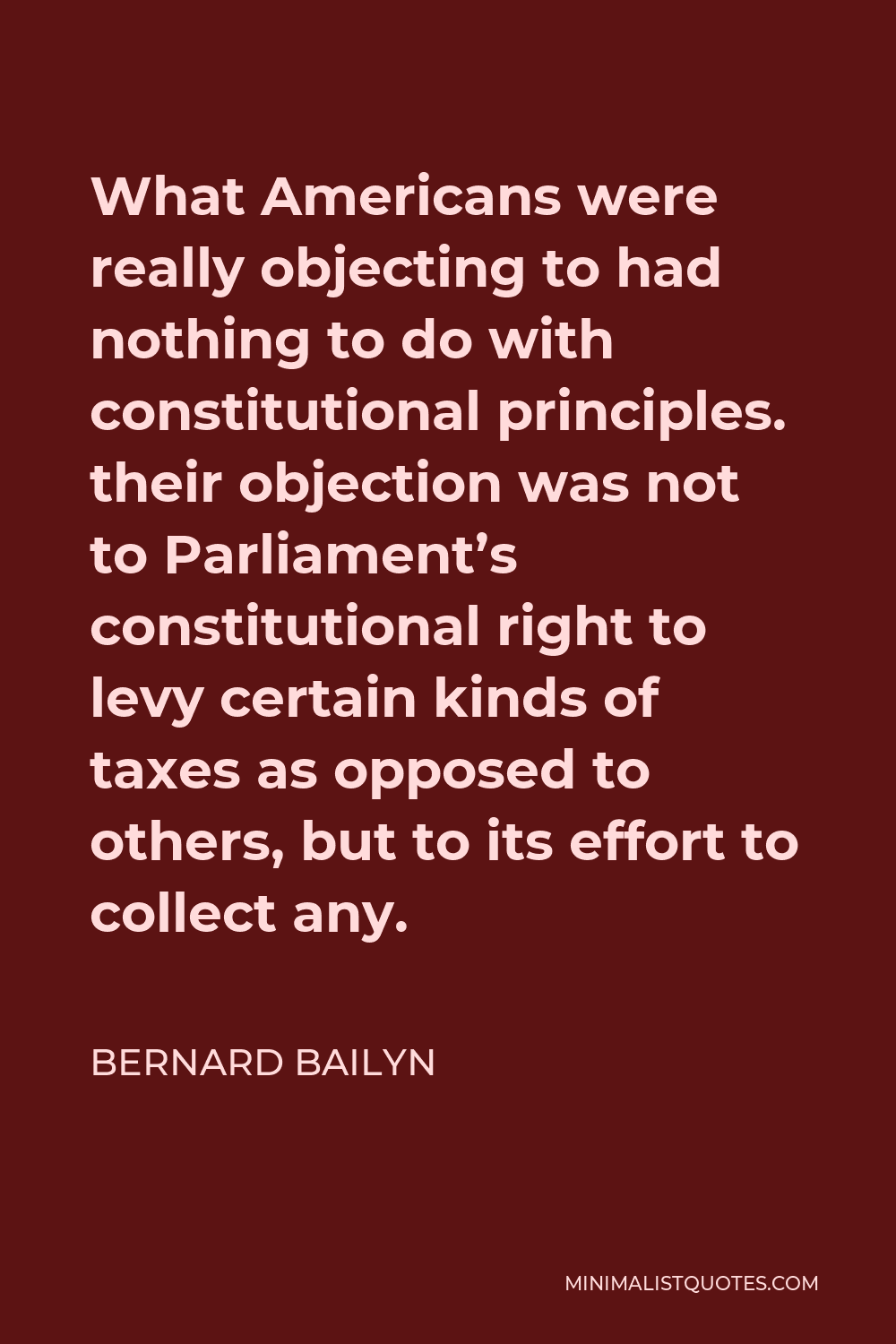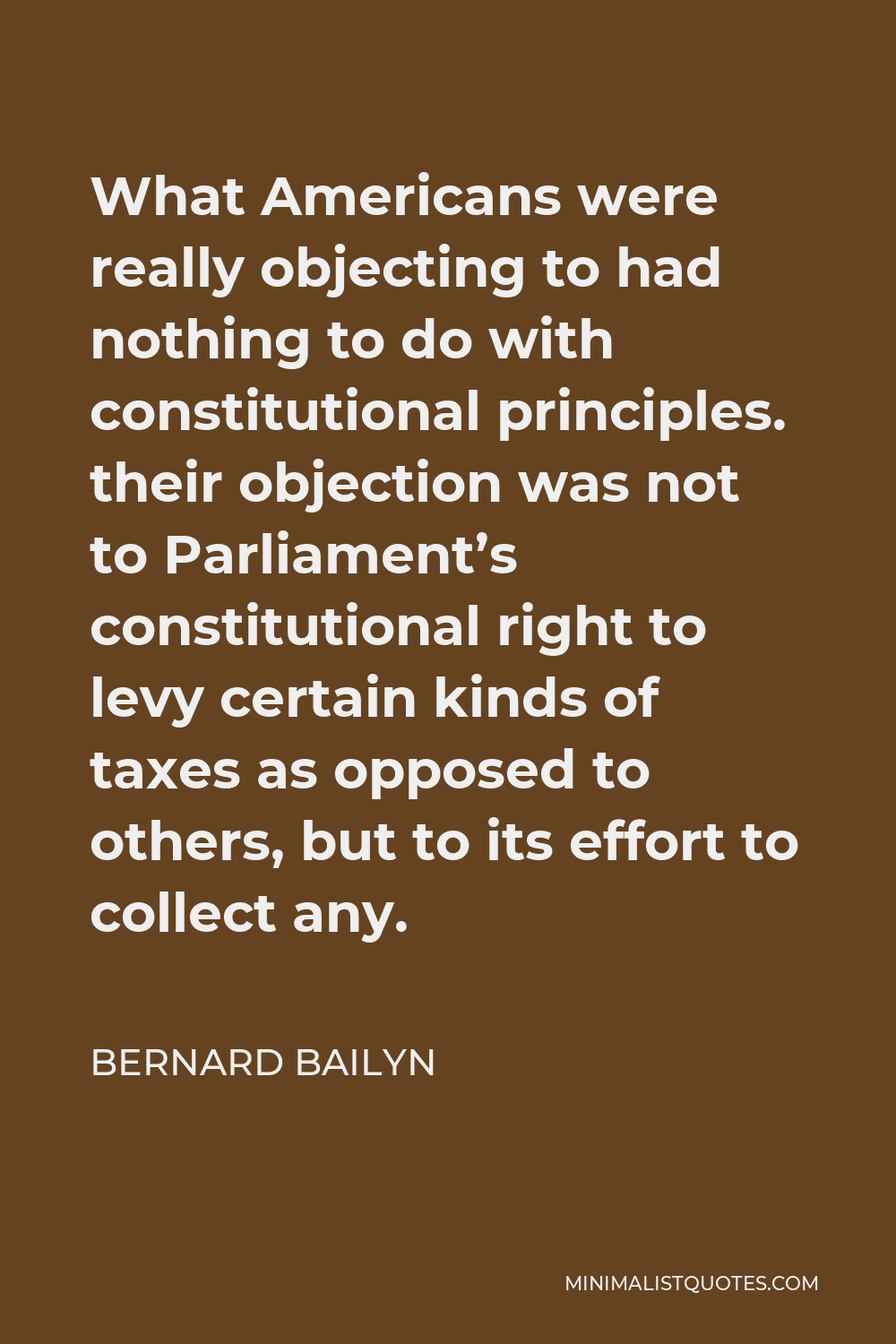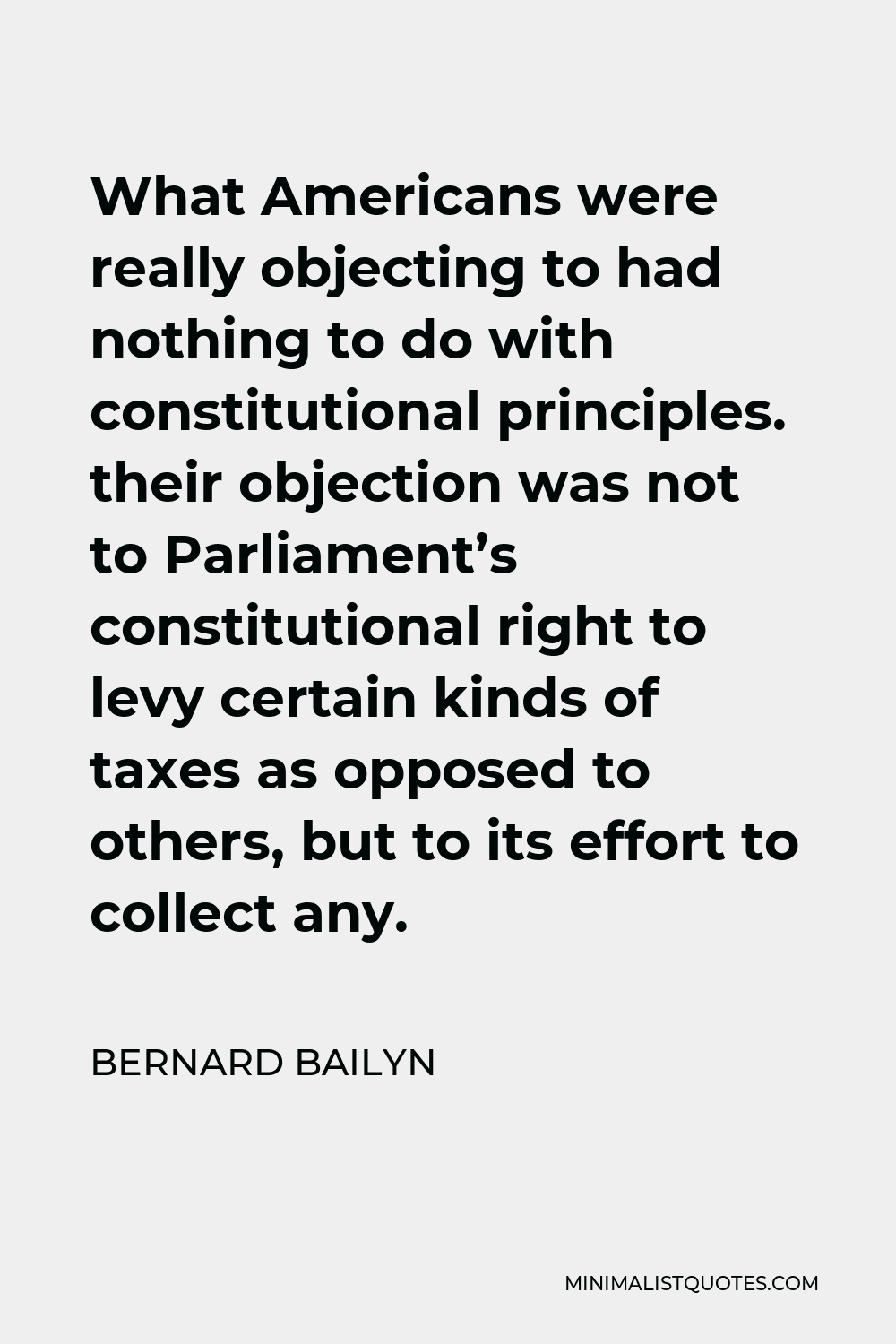In effect the people were present through their representatives, and were themselves, step by step and point by point, acting in the conduct of public affairs. No longer merely an ultimate check on government, they were in some sense the government.
BERNARD BAILYNWhat Americans were really objecting to had nothing to do with constitutional principles. their objection was not to Parliament’s constitutional right to levy certain kinds of taxes as opposed to others, but to its effort to collect any.
More Bernard Bailyn Quotes
-





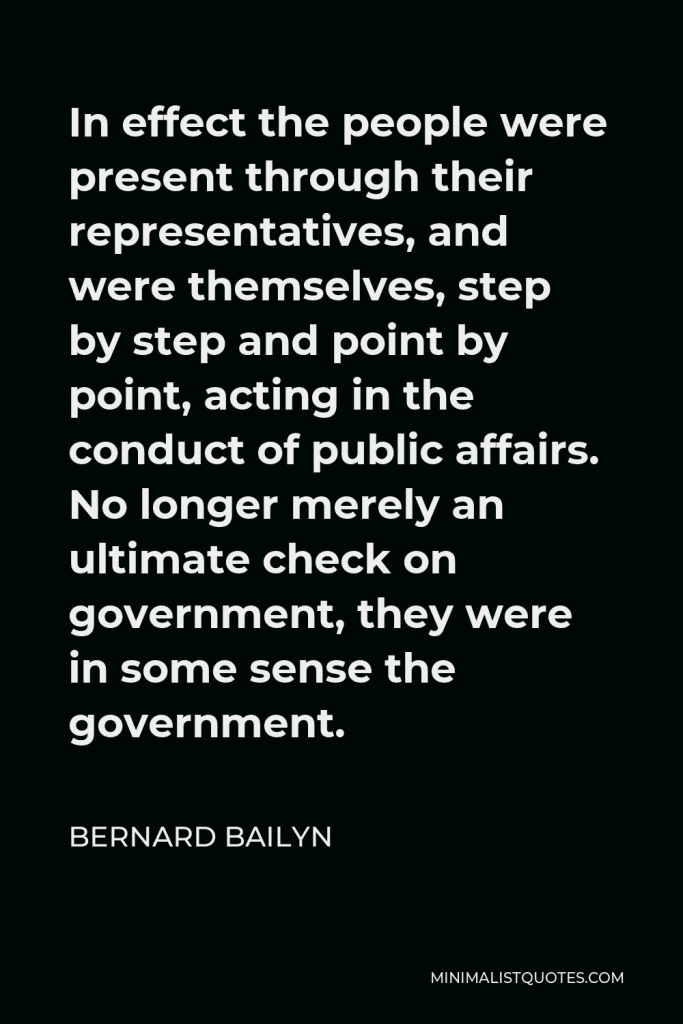

-





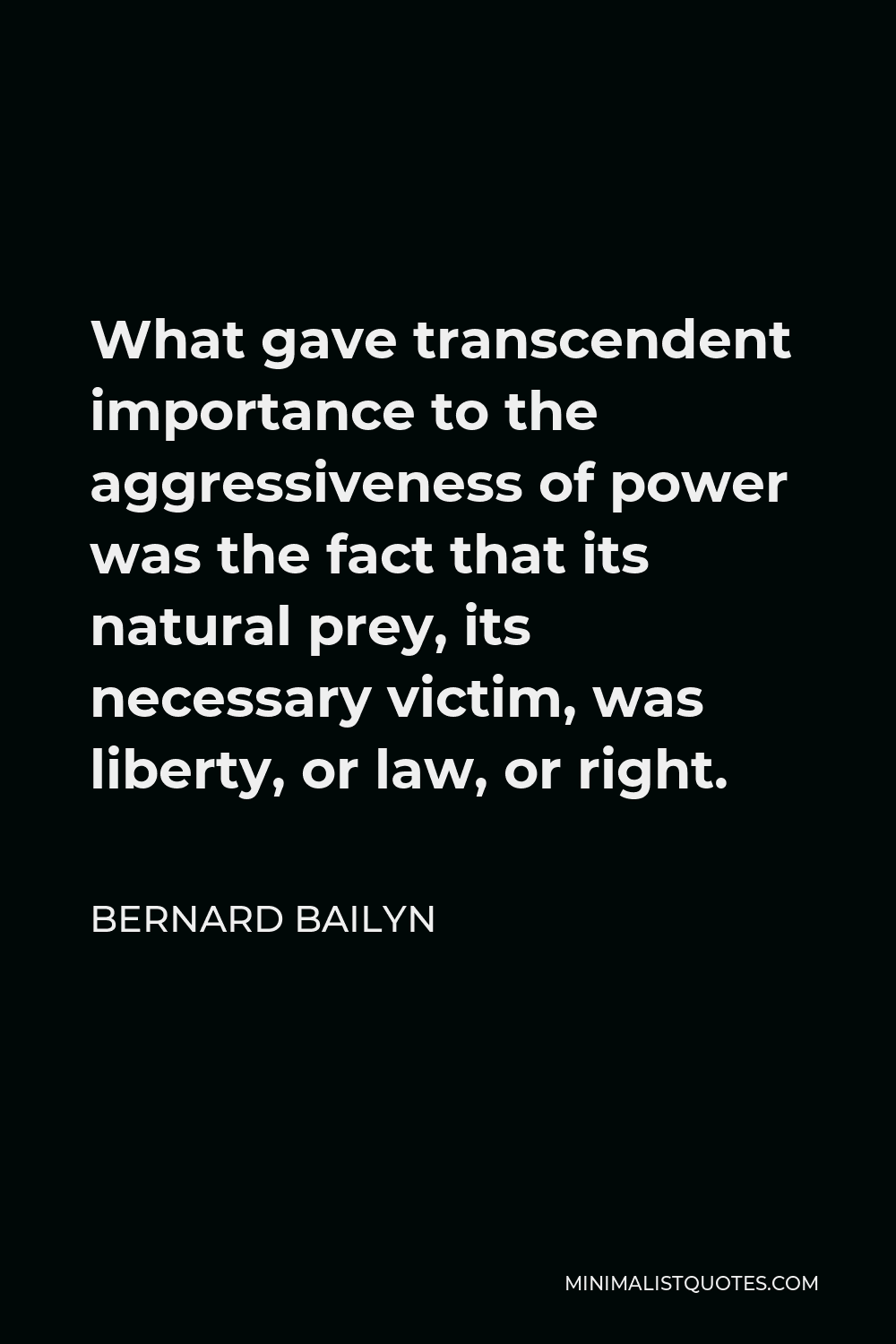
What gave transcendent importance to the aggressiveness of power was the fact that its natural prey, its necessary victim, was liberty, or law, or right.
BERNARD BAILYN -





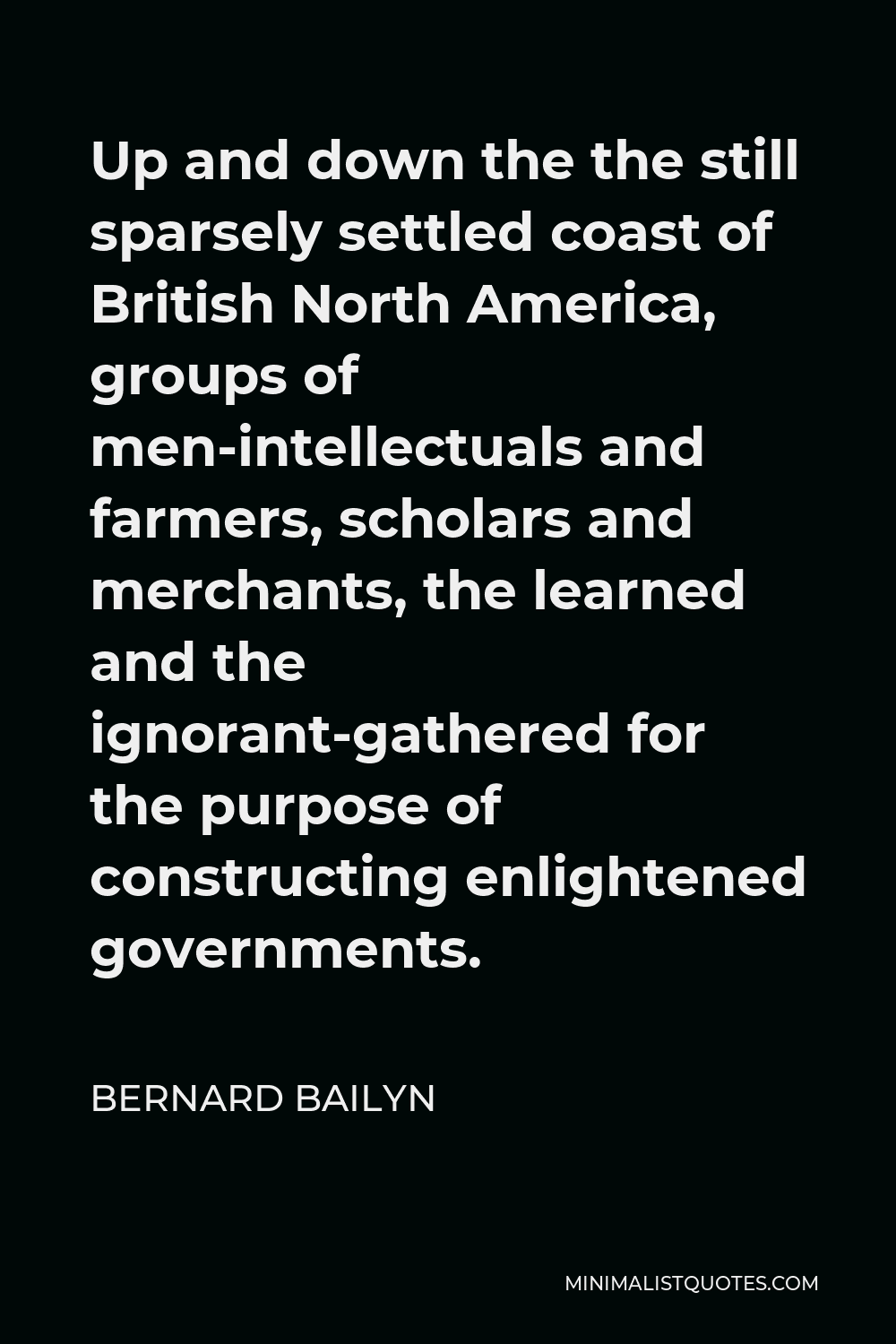
Up and down the the still sparsely settled coast of British North America, groups of men-intellectuals and farmers, scholars and merchants, the learned and the ignorant-gathered for the purpose of constructing enlightened governments.
BERNARD BAILYN -





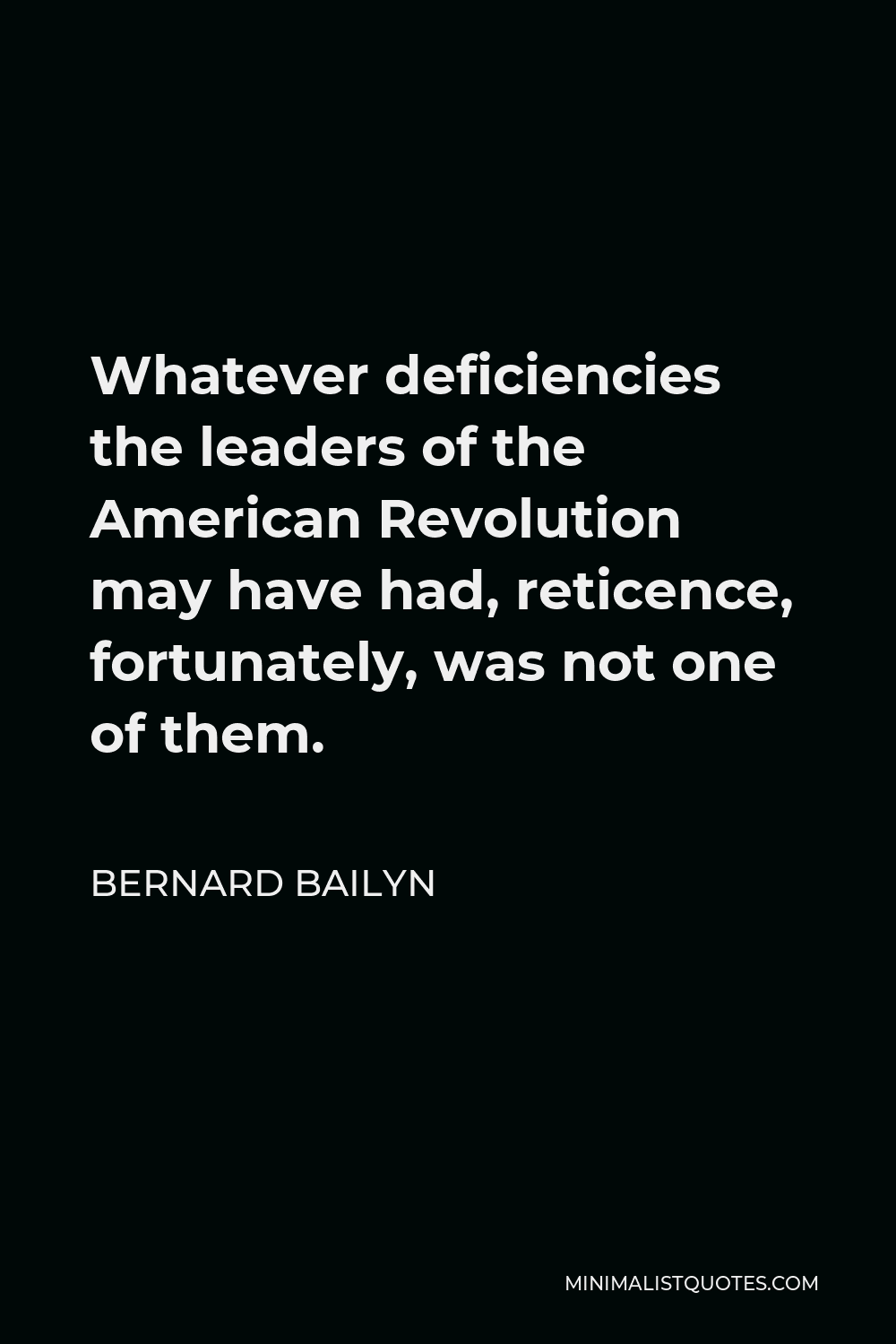
Whatever deficiencies the leaders of the American Revolution may have had, reticence, fortunately, was not one of them.
BERNARD BAILYN -





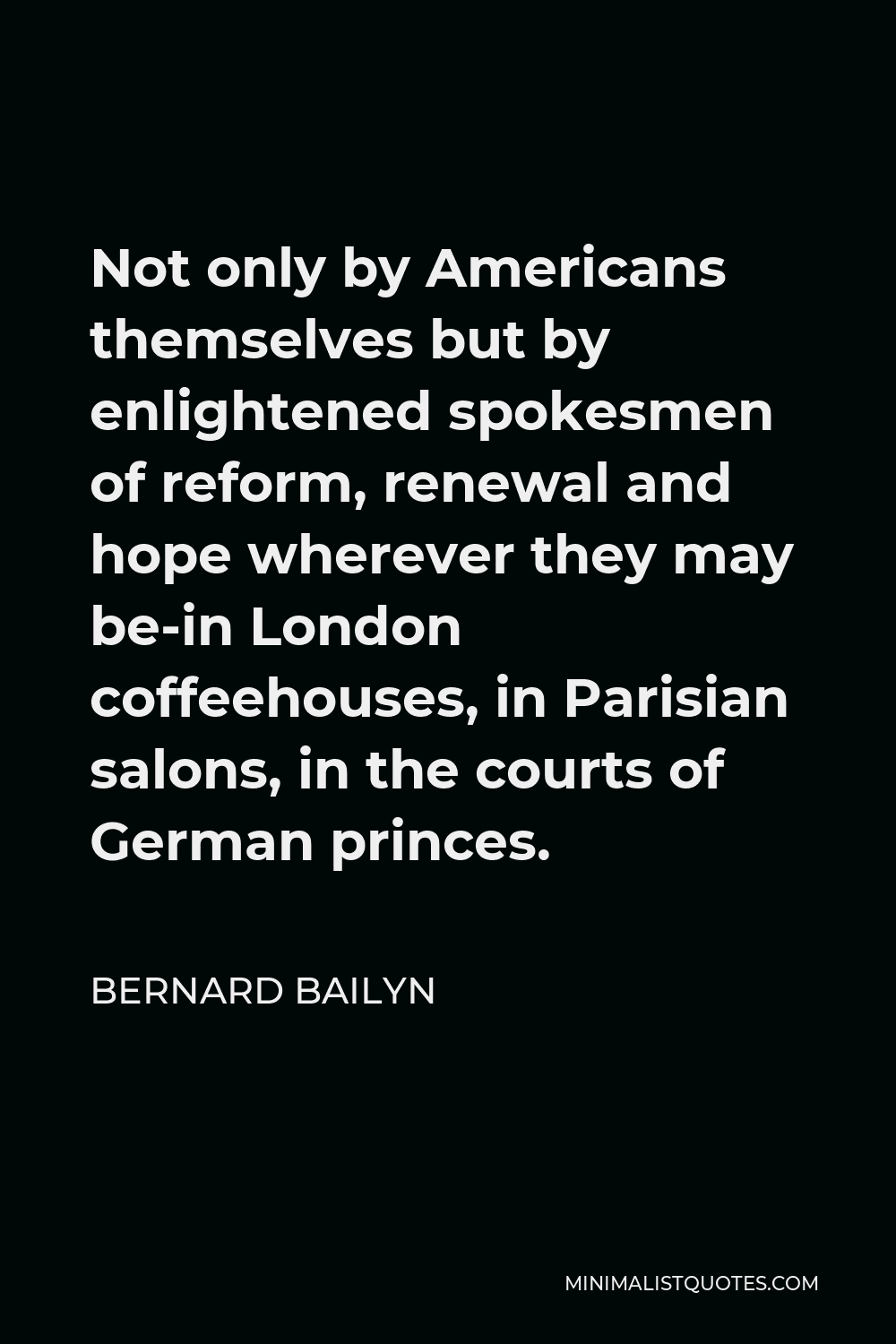
Not only by Americans themselves but by enlightened spokesmen of reform, renewal and hope wherever they may be-in London coffeehouses, in Parisian salons, in the courts of German princes.
BERNARD BAILYN -






Incorporating in their colorful, slashing, superbly readable pages, the major themes of the “left” opposition under Walpole, these libertarian tracts.
BERNARD BAILYN -





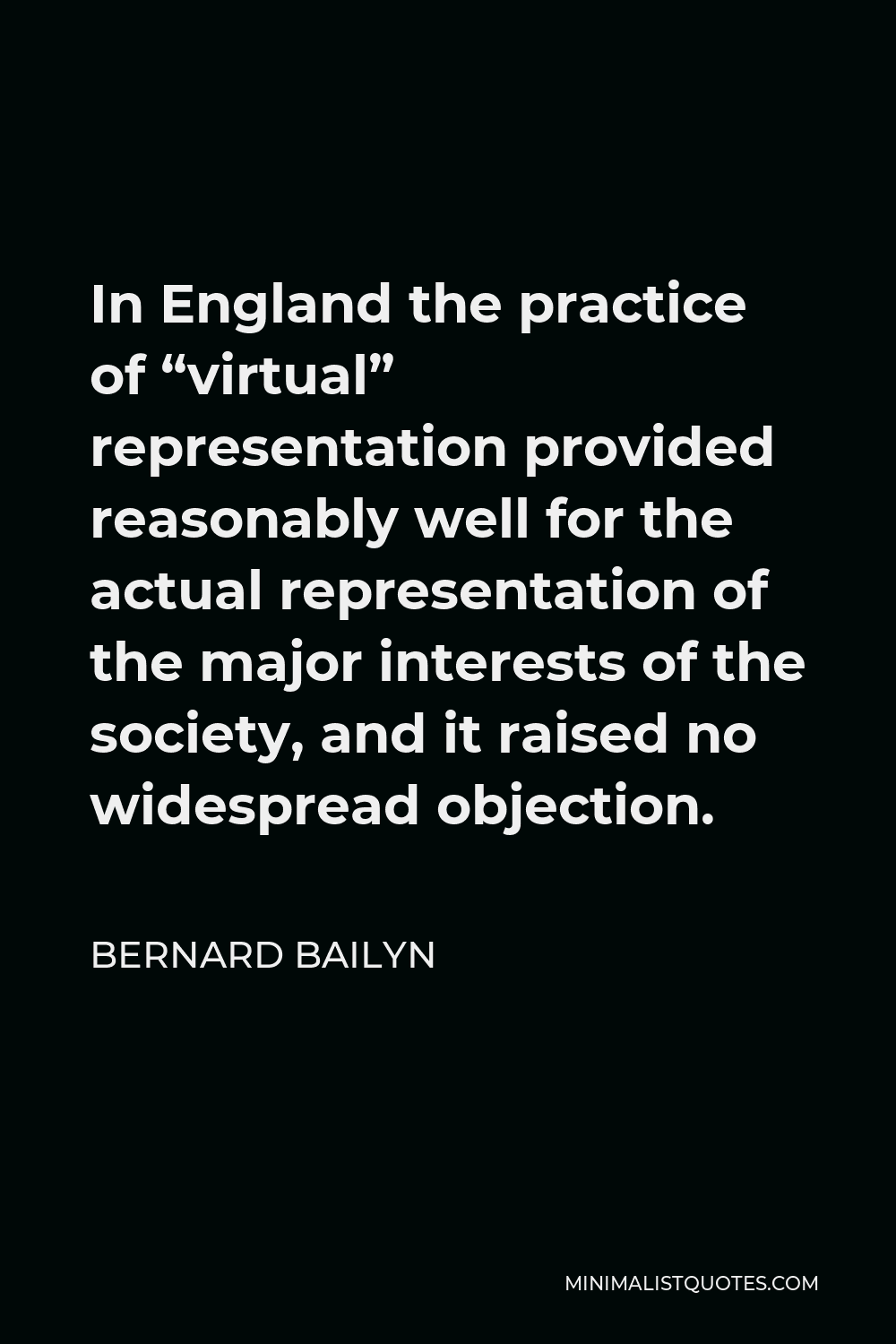
In England the practice of “virtual” representation provided reasonably well for the actual representation of the major interests of the society, and it raised no widespread objection.
BERNARD BAILYN -







Defiance to constituted authority leaped like a spark from one flammable area to another, growing in heat as it went.
BERNARD BAILYN -





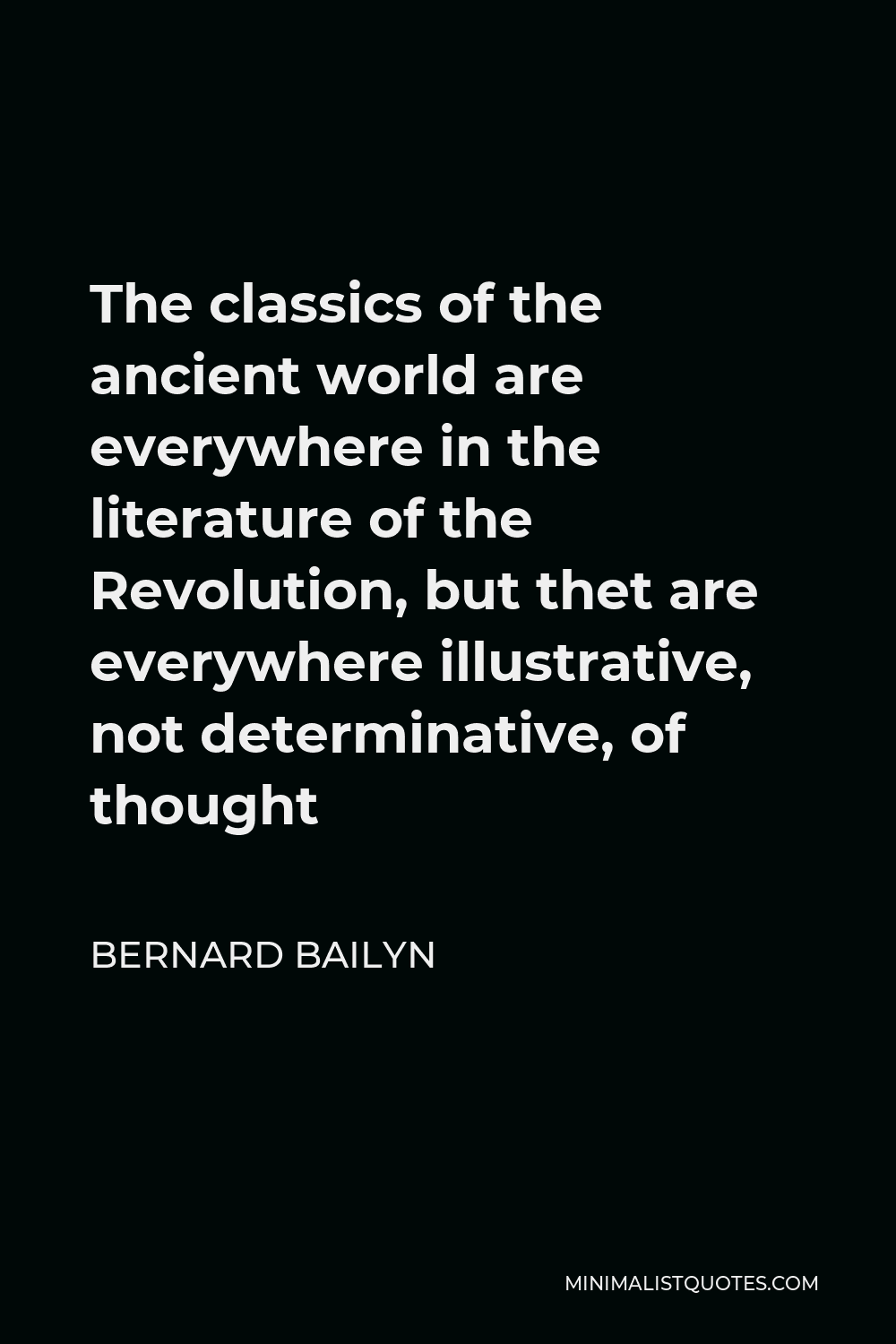
The classics of the ancient world are everywhere in the literature of the Revolution, but thet are everywhere illustrative, not determinative, of thought
BERNARD BAILYN -






The categories within which the colonists thought about the social foundations of politics were inheritances from classical antiquity, reshaped by seventeenth century English thought.
BERNARD BAILYN -





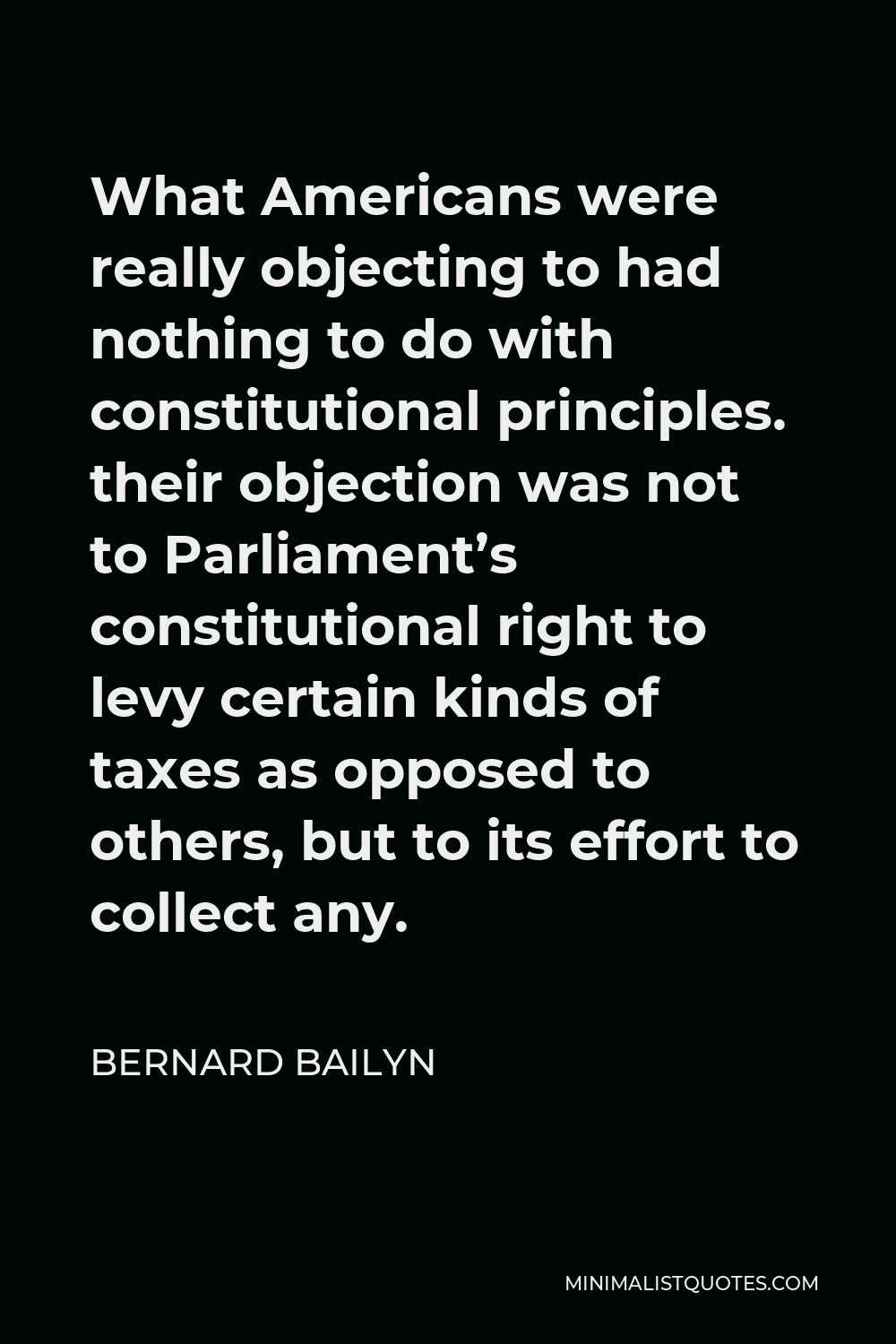
What Americans were really objecting to had nothing to do with constitutional principles. their objection was not to Parliament’s constitutional right to levy certain kinds of taxes as opposed to others, but to its effort to collect any.
BERNARD BAILYN -






The full bibliography of pamphlets relating to the Anglo-American struggle published in the colonies through the year 1776 contains not a dozen or so items but over four hundred.
BERNARD BAILYN -





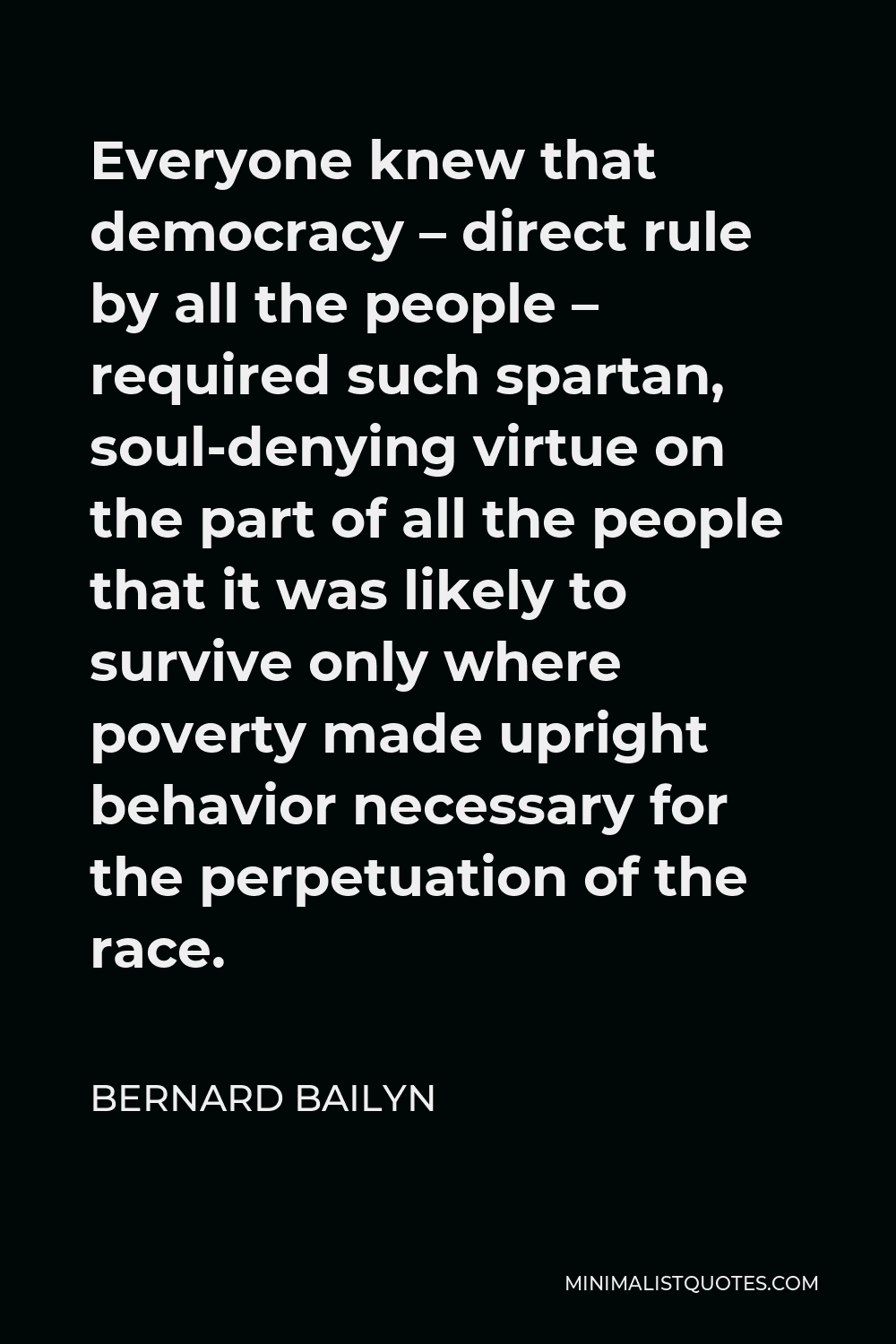
Everyone knew that democracy – direct rule by all the people – required such spartan, soul-denying virtue on the part of all the people that it was likely to survive only where poverty made upright behavior necessary for the perpetuation of the race.
BERNARD BAILYN -






The idea of sovereignty current in the English speaking world of the 1760’s was scarcely more than a century old. It had first emerged during the English Civil War, in the early 1640’s, and had been established as a canon of Whig political thought in the Revolution of 1688.
BERNARD BAILYN -





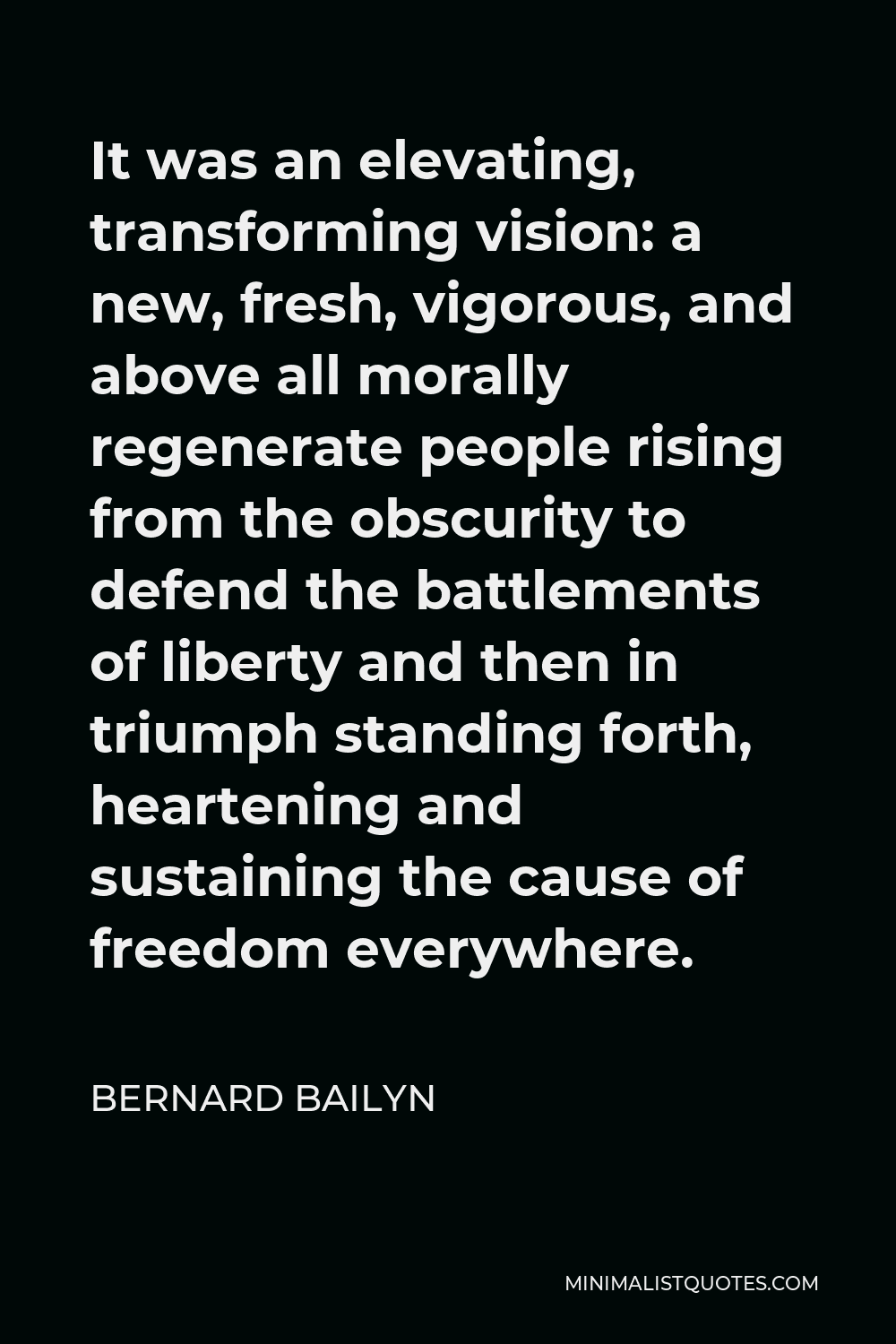
It was an elevating, transforming vision: a new, fresh, vigorous, and above all morally regenerate people rising from the obscurity to defend the battlements of liberty and then in triumph standing forth, heartening and sustaining the cause of freedom everywhere.
BERNARD BAILYN -





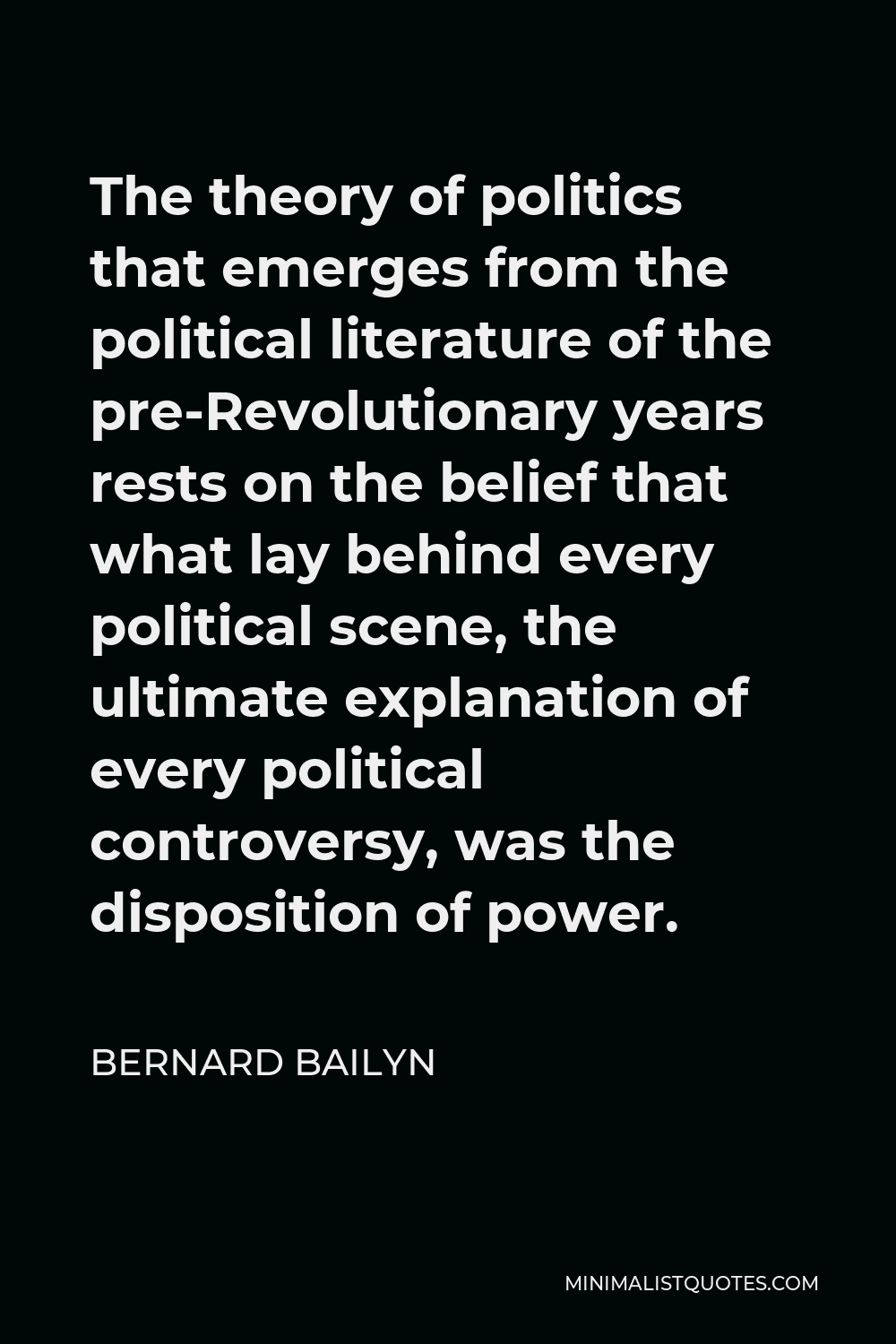
The theory of politics that emerges from the political literature of the pre-Revolutionary years rests on the belief that what lay behind every political scene, the ultimate explanation of every political controversy, was the disposition of power.
BERNARD BAILYN
